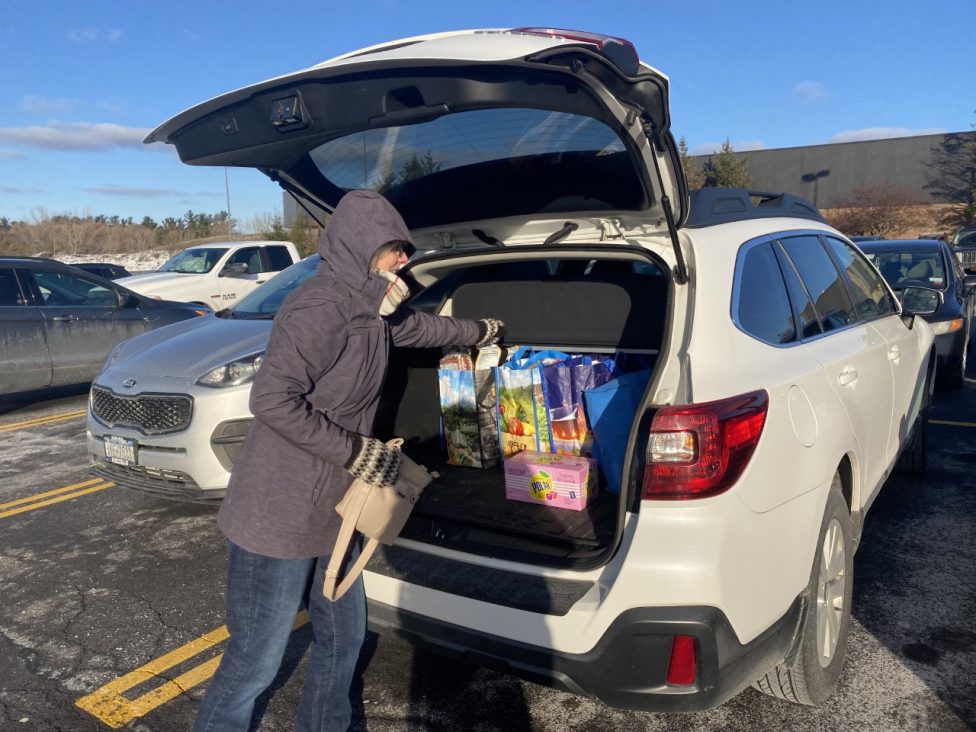Wegmans starts statewide plastic bag ban early
Wegmans starts statewide plastic bag ban early

On Monday January 27, Wegmans eliminated from their stores what some may consider a staple in the grocery store industry: plastic bags. The replacement of plastic bags with both paper and reusable bags comes after New York State passed the Bag Waste Reduction Law, which will go into effect as a statewide ban of plastic bags on March 1 and will affect all businesses that are required to collect state sales tax, not just grocery stores.
New York is promoting the new law with #BYOBagNY – Bring Your Own Bag. The state also promotes recyclable film plastic bags as an alternative. The law does have some exemptions including bags for uncooked meat and produce, bags sold as trash bags and “carryout bags provided by a restaurant, tavern or similar food service establishment.” The law also authorizes counties and cities to place a five-cent tax on paper bags, although neither Onondaga County nor Syracuse has done so.
Aline Cunia, an SU student who shops at Wegmans, thinks that these fees may anger some people. “I think people are going to get mad about it unnecessarily. All the boomers will rise up in their Facebook posts,” she said.
According to a written statement, Wegmans will charge patrons five cents for paper bags and donate the proceeds to local food banks.
The grocery chain first tested the plastic ban at two stores in Corning and Ithaca, which both reported an increase from about 20 percent to 80 percent for the average use of reusable bags, which Wegmans stores first introduced in 2007.
“Wegmans’ goal is to shift all customers to reusable bags, the best option to solve the environmental challenge of single-use grocery bags,” the statement read.
Wegmans customer Becky Ranueci found herself buying reusable bags to avoid the fees on the paper bags.
“I mean if it was something that I just stopped at the store to pick up something quick, then I would probably get paper,” she said. “But because I do my grocery shopping once a week, I just bought the reusable.”
The NYS Plastic Bag Task Force was created in March 2017 by Governor Cuomo in order to analyze the plastic bag problem and provide potential solutions — one of which was the plastic bag ban.
The Task Force’s final report said that New Yorkers use an estimated 23 billion plastic bags annually and that “the New York City Department of Sanitation estimates that it collects an average of 1,700 tons of plastic bags per week, costing $12.5 million annually in disposal costs.”
The group also looked at the implementation of plastic bag bans in other regions such as California. The Task Force came up with several options to fix the problem, including a fee on single-use plastic bags rather than a ban.

Wegmans sells their reusable bags for 99 cents which is a small price to customer Jeff Spelder.
“At 99 cents a bag I don’t think it’s asking for too much. It’s something that’s reusable,” he said. “People pay a lot for a lot of crap that is going to be gone in a couple of days, so this is an investment for something they’ll have for future shopping trips.”
However, there are arguments to be made that paper and even reusable bags are not much better than plastic bags. A study from the United Kingdom’s Environment Agency calculated the carbon footprint of various types of bags from their production and transportation. The study found that paper bags would have to be used 3 times “to ensure that they have lower global warming potential than conventional HDPE [high-density polyethylene] carrier bags.”
Possibly even more astounding is that the study found reusable cotton bags would have to be used 131 times. To make things worse, if the plastic bag was reused as a trash bin liner, that number grew to 327.
The primary grocery shopper of U.S. households went on average 1.6 times per week in 2019, according to Statista, so it could take years for someone’s cotton bag to equal to the carbon footprint of one HDPE bag.
The primary problem with plastic bags is littering. Since the early 1950s, the Earth has been polluted with 8.3 metric tons of plastic, according to the United Nations Environment Programme. The UN Environment also found that “up to five trillion single-use plastic bags are used worldwide every year.” This plastic lasts for centuries as it is not biodegradable.
“If current trends continue, our oceans could contain more plastic than fish by 2050,” according to UN Environment’s website.
In response to getting an early taste of life with the plastic bag ban, Wegmans customer Linda Spelder, Jeff Spelder’s wife, said she is all for eliminating plastic shopping bags. And she doesn’t think it should stop there, either.
“I remember, in my day, people would use paper bags in their kitchen trash, and I think manufacturers need to start manufacturing heavy-duty paper bags that you can put in your trash can to get rid of plastic entirely,” she said.





